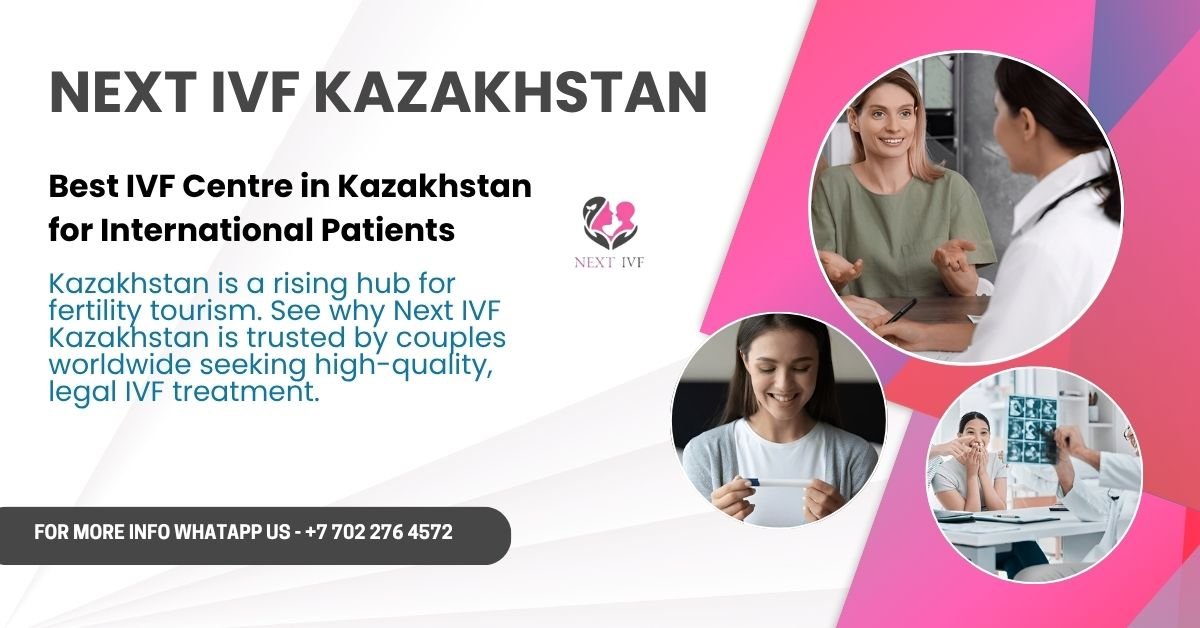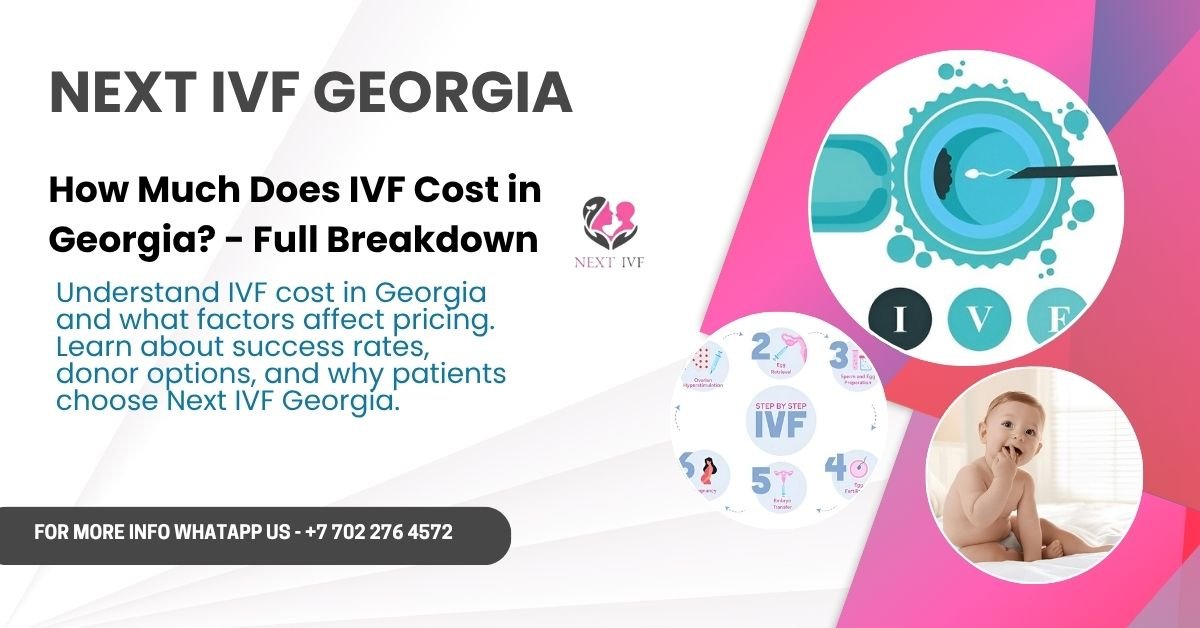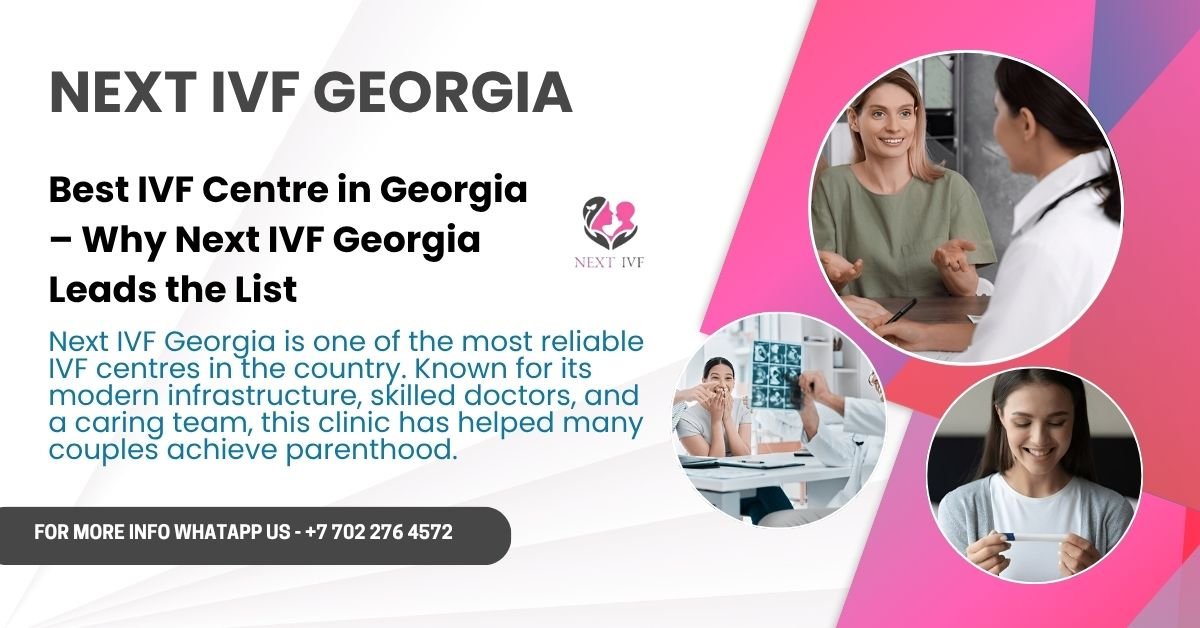How Much Does IVF Cost in Kenya? A Full Guide for 2025
In recent years, Kenya has become an increasingly popular destination for couples seeking fertility treatments, particularly In Vitro Fertilization (IVF). This growth is due to the country’s improving healthcare infrastructure, the presence of experienced fertility specialists, and affordable treatment options. IVF is a procedure where eggs are fertilized by sperm outside the body and then implanted in the uterus to help couples struggling with infertility realize their dream of parenthood.
Understanding the IVF cost in Kenya is crucial for couples considering treatment because it helps them plan financially and choose the best clinic for their needs. This article provides an in-depth look at the costs associated with IVF in Kenya, the factors that affect pricing, success rates, and why Kenya stands out as a fertility treatment destination.
What is IVF?
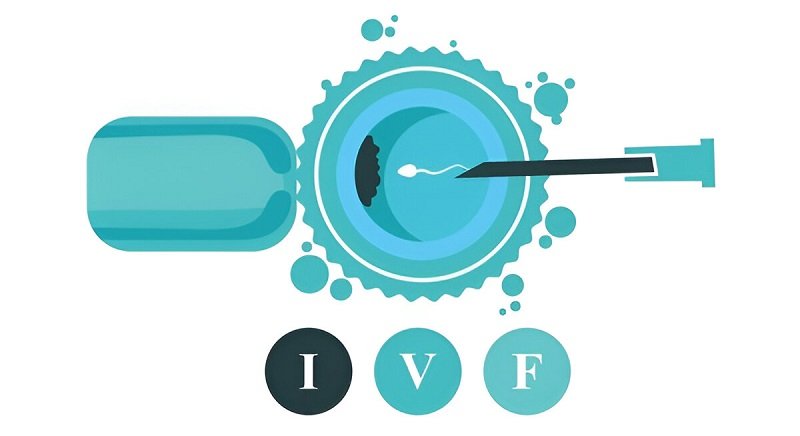
IVF, or In Vitro Fertilization, is a medical procedure designed to help couples who struggle to conceive naturally. Simply put, IVF treatment involves fertilizing an egg with sperm outside the body in a specialized laboratory to create an embryo. Once the embryo develops, it is carefully placed into the woman’s uterus, where it can implant and grow just like in a natural pregnancy.
IVF treatment is especially helpful for couples facing challenges such as blocked fallopian tubes, low sperm count, irregular ovulation, or unexplained infertility. It’s also a valuable option for single parents and same-sex couples who wish to have a child using donor eggs or sperm.
This process is carried out by experienced fertility specialists using advanced technology and equipment. Typically, one IVF cycle takes around 3 to 6 weeks from start to finish. While IVF treatment does not guarantee pregnancy every time, it has enabled millions worldwide to achieve their dream of becoming parents.
For those exploring fertility options, IVF treatment in countries like Kenya offers cutting-edge care at an affordable cost.
How Does IVF Work?
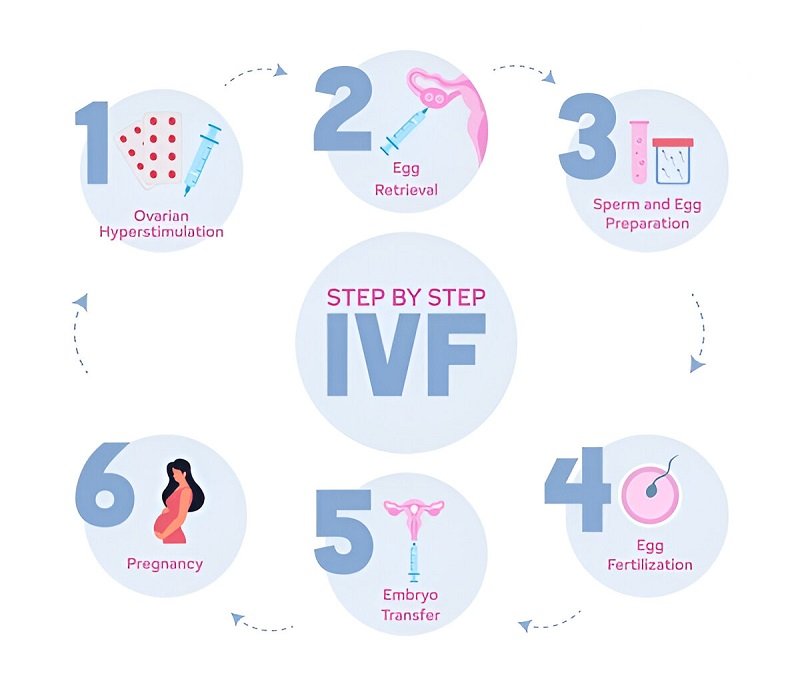
IVF is a carefully designed, step-by-step medical procedure that helps individuals and couples become parents when natural conception is difficult or not possible. Here’s a detailed look at how the IVF process works:
1. Egg Stimulation: To begin, the woman undergoes hormonal treatment for about 10 to 12 days. These fertility medications stimulate her ovaries to produce multiple eggs instead of the usual one per cycle. This increases the chances of successful fertilization. During this period, regular ultrasound scans and blood tests monitor the growth and development of the eggs to determine the best time for retrieval.
2. Egg Collection: Once the eggs have matured, a minor surgical procedure called egg retrieval or follicular aspiration is performed. Under light sedation or anesthesia, a thin needle is guided through the vaginal wall into the ovaries to gently collect the eggs. This procedure is generally quick and causes minimal discomfort or pain.
3. Sperm Collection: On the same day as egg retrieval, the male partner provides a sperm sample through masturbation. If the male partner has fertility issues or if the couple requires donor sperm, sperm from a certified sperm bank is used. The sperm is then prepared in the lab to select the healthiest and most motile sperm for fertilization.
4. Fertilization: The collected eggs and prepared sperm are combined in a controlled laboratory environment. This is done either by mixing them in a petri dish (conventional IVF) or by directly injecting a single sperm into each mature egg through a process called Intracytoplasmic Sperm Injection (ICSI). Fertilization is confirmed when a sperm successfully enters an egg, creating an embryo.
5. Embryo Culture and Transfer: The fertilized eggs (embryos) are carefully monitored as they develop over the next 3 to 5 days in the lab. During this time, embryologists select the healthiest and most viable embryo(s) for transfer. The selected embryo is then gently placed into the woman’s uterus using a thin catheter. This embryo transfer procedure is straightforward, typically painless, and takes only a few minutes.
6. Pregnancy Test: Approximately 10 to 14 days after the embryo transfer, a blood test measures the level of the hormone hCG (human chorionic gonadotropin) to determine if implantation was successful and the woman is pregnant. If the test is positive, further monitoring and care continue throughout the pregnancy.
IVF Process Step-by-Step
| Step | What Happens |
| 1. Consultation | Meet the fertility doctor. Basic tests are done to understand your body’s needs. |
| 2. Hormone Injections | Women take hormone injections for 10–12 days to produce multiple eggs. |
| 3. Egg Retrieval | Eggs are collected from the woman’s ovaries using a small needle (painless with light sedation). |
| 4. Sperm Collection | Male partner gives sperm sample. Donor sperm can be used if needed. |
| 5. Fertilization | Eggs and sperm are mixed in the lab. If fertilization happens, embryos are formed. |
| 6. Embryo Culture | Embryos grow in the lab for 3–5 days. Best quality embryos are selected. |
| 7. Embryo Transfer | One embryo is placed into the woman’s uterus. It’s a simple and painless procedure. |
| 8. Pregnancy Test | After 10–14 days, a blood test is done to check if pregnancy has started. |
IVF Cost in Kenya

The IVF cost in Kenya varies widely depending on the clinic, location, and specific services required. On average, a single IVF cycle in Kenya costs between KES 200,000 to KES 400,000 (approximately USD 1,500 to USD 3,500). This price generally includes ovarian stimulation, egg retrieval, fertilization, and embryo transfer.
Additional costs might apply for services such as:
- Fertility medications (which can range from KES 50,000 to KES 150,000)
- Intracytoplasmic sperm injection (ICSI) if required
- Preimplantation Genetic Diagnosis (PGD) or Screening (PGS)
- Embryo freezing and storage
- Additional consultations or scans
| Treatment Type | Cost Range (KES) | Cost Range (USD) |
| Basic IVF Cycle | 250,000 – 400,000 KES | $2,000 – $3,200 |
| IVF with ICSI | 350,000 – 500,000 KES | $2,800 – $4,000 |
| Frozen Embryo Transfer | 80,000 – 150,000 KES | $640 – $1,200 |
| Egg Donation | 400,000 – 600,000 KES | $3,200 – $4,800 |
| IVF Medications | 100,000 – 200,000 KES | $800 – $1,600 |
The following is the table of expenses involved in the procedure of IVF packages at Next IVF Kenya:
| City | Estimated IVF Cost Range (KES) | Estimated IVF Cost Range (USD) |
| IVF Cost in Nairobi | 300,000 – 500,000 KES | $2,400 – $4,000 |
| IVF Cost in Mombasa | 280,000 – 450,000 KES | $2,240 – $3,600 |
| IVF Cost in Kisumu | 250,000 – 400,000 KES | $2,000 – $3,200 |
| IVF Cost in Eldoret | 250,000 – 380,000 KES | $2,000 – $3,040 |
| IVF Cost in Nakuru | 260,000 – 400,000 KES | $2,080 – $3,200 |
Elements Affecting the Cost of IVF in Kenya
The IVF cost in Kenya can vary widely depending on several important factors. Understanding these elements can help couples plan their fertility journey better and choose the right treatment option. Below are the main factors that influence the cost of IVF treatment in Kenya:
Age of the Patient
The success rate and complexity of IVF procedures can change with age. Older women may need additional fertility treatments or advanced procedures, which can increase the overall fertility treatment cost in Kenya.
Type of IVF Procedure
Basic IVF cycles have different costs compared to advanced techniques like ICSI (Intracytoplasmic Sperm Injection), PICSI, or IMSI. These specialized IVF procedures in Kenya require extra lab work and expertise, raising the price.
Use of Donor Eggs or Sperm
If donor eggs or sperm are needed, the IVF cost in Kenya will increase due to additional screening, matching, and procurement expenses.
Number of IVF Cycles
Many couples require more than one IVF cycle to achieve success. Each additional cycle multiplies the overall cost of IVF in Kenya.
Medications and Hormones
Fertility drugs used to stimulate egg production vary in dosage and duration, which directly affects the total IVF cost in Kenya.
Diagnostic Tests
Pre-treatment diagnostic tests such as blood work, ultrasounds, semen analysis, and genetic screenings add to the fertility treatment expenses in Kenya.
Embryo Freezing and Storage
Freezing embryos for future use involves storage fees and thawing costs, increasing the overall IVF treatment cost in Kenya.
Clinic Facilities and Technology
Clinics equipped with state-of-the-art technology and experienced fertility specialists typically charge higher fees, reflecting the quality of care in fertility clinics in Kenya.
Geographical Location
Costs of IVF in Nairobi or Mombasa may differ from smaller cities due to infrastructure, local economic factors, and clinic reputation.
Additional Procedures
Extra services like Assisted Hatching, Preimplantation Genetic Diagnosis (PGD), or Laser Embryo Biopsy can increase the IVF cost in Kenya.
Consultation and Follow-up Visits
Fees for specialist consultations and ongoing monitoring after IVF treatment are also part of the total cost.
Common IVF Services Offered in Kenya

Kenya has become a growing hub for fertility treatments, with many reputable clinics providing a wide range of IVF services in Kenya to help couples overcome infertility. Here are some of the most common IVF-related treatments you can expect at leading fertility centres across the country:
1. In Vitro Fertilization (IVF) Basic Cycle
The standard IVF process involves egg stimulation, retrieval, fertilization, and embryo transfer. This is the foundational treatment for many couples facing infertility in Kenya.
2. Intracytoplasmic Sperm Injection (ICSI)
ICSI is an advanced IVF technique where a single sperm is injected directly into an egg. This service is especially helpful for male infertility cases such as low sperm count or poor sperm motility. Many Kenyan fertility clinics offer ICSI to improve fertilization rates.
3. Intrauterine Insemination (IUI)
Although not technically IVF, IUI is a common fertility procedure offered alongside IVF treatments. It involves placing washed sperm directly into the uterus around the time of ovulation to increase the chances of fertilization.
4. Frozen Embryo Transfer (FET)
Clinics in Kenya provide FET services where embryos frozen from previous IVF cycles are thawed and transferred to the uterus, offering another chance at pregnancy without the need for full ovarian stimulation again.
5. Egg and Sperm Donation
For couples where either partner has fertility challenges, donor eggs or sperm are available at many fertility centres in Kenya. Donor programs are strictly regulated to ensure safety and ethical practices.
6. Preimplantation Genetic Diagnosis (PGD) and Screening (PGS)
These advanced genetic tests help identify healthy embryos before transfer, reducing the risk of genetic disorders. PGD/PGS services are offered in some of the top fertility clinics in Kenya.
7. Embryo Freezing and Storage
Kenyan IVF centres also offer embryo freezing services, allowing patients to preserve embryos for future use, which can be particularly useful for delaying pregnancy or in cases of medical treatments.
8. Fertility Medications and Monitoring
Personalized fertility drug protocols and regular monitoring through ultrasounds and blood tests are standard parts of IVF treatment to maximize success rates.
Why Choose Kenya for IVF?

Kenya is rapidly becoming a preferred destination for couples seeking fertility treatment. This is due to several important reasons that combine quality care, affordability, and convenience.
1. Affordable IVF Costs
One of the biggest advantages of choosing Kenya for IVF is the cost. Compared to countries in Western Europe, the United States, or even some parts of Asia, the price of IVF treatment in Kenya is significantly lower. This makes it an attractive option for medical tourists who want world-class fertility care without the heavy financial burden. Lower costs do not mean compromising on quality clinics here maintain high medical standards while making treatment more accessible.
2. Experienced Doctors
Kenya’s fertility specialists are often internationally trained and bring with them extensive experience in reproductive medicine. Many doctors have trained or worked abroad and have adapted the latest global best practices into their care. This ensures that patients receive expert guidance and treatments based on the most up-to-date research and techniques.
3. Modern Clinics
Leading fertility centres in Kenya, such as Next IVF, are equipped with state-of-the-art laboratories and cutting-edge technologies. This includes advanced diagnostic tools, embryo freezing methods, ICSI, PGD, and more. These modern facilities ensure that every step of the IVF process is handled with precision and care, improving the chances of success.
4. Easy Visa and Travel Access
Kenya is strategically located and well connected, making it easy for international patients to travel here. Visa processes are generally straightforward, especially for people from neighboring countries in Central Asia, Russia, and even parts of Europe and Asia. This ease of access reduces the stress often associated with medical travel and allows patients to focus on their treatment and recovery.
5. Personalized Care
Unlike overcrowded clinics in some countries, fertility centres in Kenya typically have smaller patient loads. This means doctors and staff can spend more time with each patient, offering personalized consultations, tailored treatment plans, and emotional support throughout the journey. Patients often find this attentive care reassuring and comforting during what can be a challenging time.
International Patients at Next IVF Kenya
The clinic welcomes patients from:
- India
- Uzbekistan
- Kyrgyzstan
- Russia
- Turkey
- Middle Eastern countries
- Europe (select countries)
They offer support with:
- Visa and travel assistance
- Hotel and local stay
- Medical translators
- Transport to and from the clinic
- Remote consultations
What is the success rate of IVF at Next IVF Kenya?

The success rate of IVF treatment at Next IVF Kenya varies depending on several factors, including the patient’s age, health condition, and type of procedure used. Generally, for couples using their own eggs, the success rate ranges between 50% to 60%. This means that around half of the patients undergoing IVF achieve pregnancy through the clinic’s treatment protocols.
For patients opting for donor eggs, the success rate tends to be higher, reaching approximately 70% to 75%. Donor eggs often come from younger, healthy donors, which improves the chances of successful fertilization and implantation.
Next IVF Kenya uses modern technology and follows international standards, which contribute to better outcomes. However, individual results may vary based on personal health factors, lifestyle, and adherence to medical advice. Patients are encouraged to consult directly with the clinic to get a clearer understanding of their specific chances of success.
Why trust Next IVF Kenya?
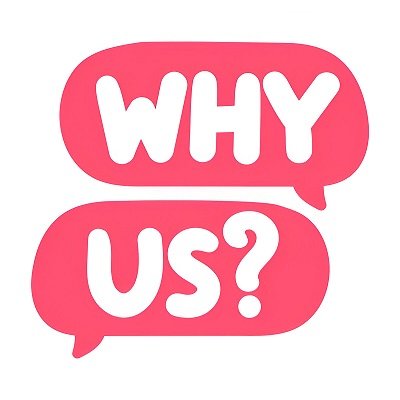
Struggling with infertility can be emotionally and physically challenging, but you don’t have to face it alone. At Next IVF Kenya, we combine advanced science with genuine care and compassion to help you realize your dream of becoming a mom and dad.
Our centre is dedicated to supporting every couple with personalized fertility solutions tailored to your unique needs. We understand how deeply you desire to start or expand your family, and that’s why our expert team including IVF specialists, gynecologists, embryologists, and supportive staff stands by your side every step of the way.
Why choose Next IVF Kenya as your trusted fertility partner?
- Comprehensive treatments: From IVF, IUI, and frozen embryo transfer to ovum and semen donation, laparoscopy, ICSI, PGD, and male infertility care — we offer the full spectrum of cutting-edge fertility services.
- High success rates: Our proven protocols and experienced specialists maximize your chances of success.
- Affordable care: Quality fertility treatment should be accessible to all. We provide world-class solutions at pocket-friendly prices without compromising on care or outcomes.
Don’t wait any longer to begin your journey toward parenthood. Contact Next IVF Kenya today at +91 7827636596 or email us at info@nextivf.com. Together, we’ll make your dream of having a family a beautiful reality, with the right centre, the right doctors, and the right care.
Final Lines
Starting the journey to parenthood through IVF can be both exciting and challenging. In Kenya, couples and individuals struggling with infertility have access to advanced fertility treatments at affordable prices. With experienced fertility specialists, modern clinics, and a range of comprehensive IVF services, Kenya is becoming a preferred destination for fertility care.
Choosing the right IVF centre in Kenya means receiving personalized attention, the latest medical technology, and compassionate support throughout the process. While success rates vary depending on individual circumstances, many couples have realized their dream of having a baby with IVF treatment in Kenya. Don’t let infertility define your story—take the first step today by consulting with a trusted fertility clinic. Your path to parenthood starts here, with hope, expert care, and the promise of new beginnings.
Frequently Asked Questions (FAQs)
1. What is the average IVF cost in Kenya?
The average IVF cost in Kenya ranges between 250,000 KES to 500,000 KES (approximately $2,000 to $4,000), depending on the clinic and treatment type.
2. How long does one IVF cycle take in Kenya?
One IVF cycle usually takes around 3 to 6 weeks, from ovarian stimulation to embryo transfer and pregnancy testing.
3. Are fertility medications included in the IVF cost?
Fertility medications are often an additional expense and can vary depending on the patient’s needs and prescribed dosage.
4. Is IVF treatment available in all major cities in Kenya?
Yes, IVF services are available in major cities like Nairobi, Mombasa, Kisumu, Eldoret, and Nakuru, with Nairobi having the highest number of specialized fertility clinics.
5. What success rates can I expect from IVF in Kenya?
Success rates vary based on age, fertility issues, and clinic expertise, but many Kenyan clinics report success rates comparable to international standards, often around 40-50% per cycle for women under 35.
6. Can single parents or same-sex couples undergo IVF treatment in Kenya?
Yes, many clinics in Kenya offer IVF services to single parents and same-sex couples, often involving donor sperm or eggs to assist in conception.
Read Also:
- Surrogacy Cost in Kenya – Complete Guide for 2025 (Legal & Affordable)
- Surrogacy Cost in Kazakhstan: Everything You Need to Know Before You Begin
- 10 Best Surrogacy Centre in Georgia 2025 – Safe, Legal & Trusted
- PGD Cost in Georgia: Everything You Need to Know in 2025
- Surrogacy Cost in Georgia 2025: What’s Included & How to Avoid Hidden Fees

